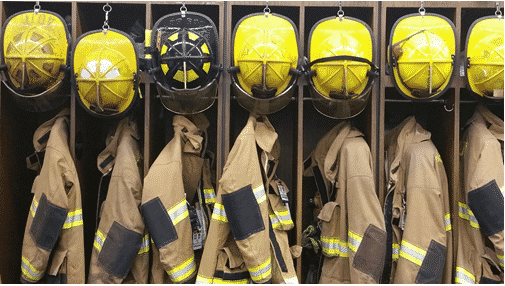Author: IAFF Staff
December 20, 2019
While occupational health programs in the fire service have historically focused on cancer, heart disease, and musculoskeletal injury, the risks of behavioral health problems have been long ignored.
This disconnect has led to a deeply ingrained stigma that has thrived in the profession for many people. If you are struggling emotionally to cope with the job, the stigma is that you are weak, ineffective, different or just not cut out to be a fire fighter.
As 2019 draws to a close, there is good news: We are making progress. As we continue to evolve beyond the suck-it-up-buttercup mentality, many would argue that no area of occupational health has flourished more rapidly than behavioral health in the past decade. Never have this many fire fighters talked so openly about the challenges of occupational stress, mental illness and substance abuse among their ranks.

The truth is clear — fire fighters are ready to tackle the stigma around mental health issues head on. Consider these important signs that stigma in the fire services is finally lifting:
- Behavioral health education and training has exploded. Launched in 2016, the IAFF Peer Support Training Program has grown dramatically in its first three years. More than 5,700 fire fighters have been trained through the program, which delivered 96 training opportunities throughout the United States and Canada in 2019 alone. The IAFF Peer Support Training Program educates fire fighters on behavioral health issues that impact the fire service, while teaching critical intervention skills that can be used to help a brother or sister in crisis. In addition to peer support training, many departments have adapted their own behavioral health trainings and developed awareness campaigns.
- Presumptive legislation for PTSD continues to expand. 2019 was an incredible year for advances in state and provincial presumptive laws for workers’ compensation to cover post-traumatic stress disorder (PTSD). Thanks to advances in legislation, when a fire fighter is diagnosed with PTSD as a result of the job, the law is now on their side to help recover lost wages and pay for treatment. In 2019 alone, five additional states and one province passed PTSD presumptive laws, contributing to a total of nine states and eight Canadian provinces.
- More than 1,000 fire fighters have been treated at the IAFF Center of Excellence. Recognizing the growing need to address behavioral health issues head on, the IAFF established the IAFF Center of Excellence for Behavioral Health Treatment and Recovery in 2017, a treatment center exclusively for IAFF members. More fire fighters are stepping out of the shadows to ask for help than ever before. As of November 2019, the IAFF Center of Excellence has helped more than 1,000 IAFF members since the facility opened.
- Fire fighters who seek treatment report improved work outcomes. While fire fighters have commonly cited fear of being stigmatized as a reason not to get help, many are surprised to learn that seeking treatment has actually had the opposite effect. In a 2019 survey of patients discharged from the IAFF Center of Excellence, 62% reported they felt the decision to seek treatment had a positive impact on how they are viewed in the department, while 14% report no impact at all. Furthermore, when patients were surveyed again at six months after discharge, 58% reported their decision to seek treatment has had a positive overall effect. (IAFF Center of Excellence Discharge Survey, November 2019).
- Fire departments are investing in behavioral health insurance and treatment like never before. As awareness continues to grow that mental health and substance abuse problems are common but treatable conditions, many IAFF affiliates and departments are taking a second look at health insurance plans. If a plan doesn’t cover basic services, such as outpatient counseling, substance abuse treatment or inpatient care, many employers are choosing to shop insurance plans. Some employers are taking their investment a step further to hire on-staff behavioral health clinicians to help screen, evaluate and care for fire department members throughout the year.

Restoring One Fire Fighter at Time
The IAFF Center of Excellence for Behavioral Health Treatment and Recovery is a comprehensive treatment center designed exclusively for IAFF members struggling with addiction, PTSD and other co-occurring mental health problems. Call today for a non-obligation free and confidential screening for you or a loved one.
Lauren Kosc, M.A., LCPC is a behavioral health specialist, clinician and blog editor for the International Association of Fire Fighters. If you are an IAFF member in recovery and want to share your story, contact lkosc@iaff.org.
Medical Disclaimer: The IAFF Center of Excellence aims to improve the quality of life for people struggling with a substance use or mental health disorder with fact-based content about the nature of behavioral health conditions, treatment options and their related outcomes. We publish material that is researched, cited, edited and reviewed by licensed medical professionals. The information we provide is not intended to be a substitute for professional medical advice, diagnosis or treatment. It should not be used in place of the advice of your physician or other qualified healthcare provider.

